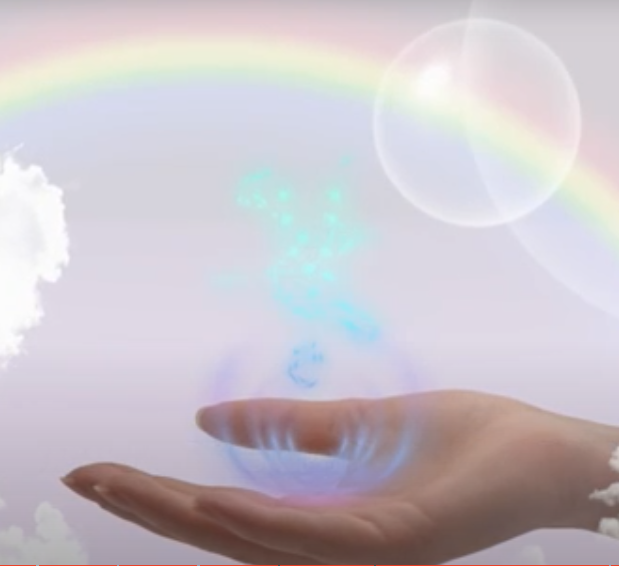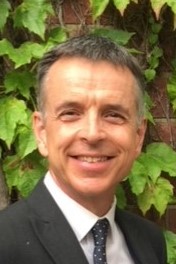Doubt is our friend – Progressive Christianity

Then Jesus came with them to a small estate called Gethsemane… He took Peter and the two sons of Zebedee with him. And sadness came over him, and great distress. Then he said to them, ‘My soul is sorrowful to the point of death. Wait here and keep awake with me. And going on a little further, he fell on his face and prayed. ‘My Father’, he said, ‘if it is possible, let this cup pass me by’. (Matthew 26:36-39)
When I was a teenager, I went to see Samuel Beckett’s play ‘Waiting for Godot’, a story about two men waiting for ‘Godot’, someone who continually sends word that he will appear but who never turns up. It has been interpreted by some to be an allegory for God’s absence, with Godot symbolising a salvation which is promised by religion, but never actually materialises. Whilst queuing to go in, my friend, an atheist, playfully told me that by the end of the evening, I would have lost my faith! For a moment I was terrified – what would my life be like without my faith? As it happened, I didn’t really understand the play, and my beliefs remained intact.
Our ideas about God inevitably change over the years. Looking back, I had a rather childlike faith – I felt threatened by doubt, afraid that I might lose something by asking questions and thinking deeply. I saw doubt as a weakness, a failure on my part, and even a sin. I couldn’t begin to ask myself questions such as ‘Does God exist?’ Any deviation from orthodoxy was dangerous – far simpler to get my faith ‘off the shelf’, accept everything I was taught at school and in the pulpit and push uncomfortable questions to the back of my mind. I remember someone once warning me, ‘if you question Church teaching in that area then who’s to say what will come next? Pull that thread, and the whole thing might unravel!’ In other words, I shouldn’t leave my comfort zone. The Church would do my thinking for me.
We love certainty, but it is over-rated, in fact, it might even be sinful! Certainty often results in religious fundamentalism which can lead to bigotry and intolerance, or in some cases a complete loss of belief. As we get older we realise that certainty can be the enemy of belief, not a faithful friend. Everyone has doubts, the most famous saints, and of course Jesus himself, in the Garden of Gethsemane before his crucifixion, and in his final hours on the cross. Many of the great saints and mystics such as St John of the Cross have spoken about doubt as the ‘dark night of the soul’, a period of time when God seems distant and, in many cases, just not there at all. St John is clear that this is not something to be avoided, but to be embraced as a stage leading towards an eventual deeper appreciation of the presence of God. In short, doubt is holy. It will come in God’s own time and it often appears out of our control. The theologian Peter Enns describes doubt as ‘divine tough love’. It is God trying to lead us to something deeper, ‘life to the full’, rather than just turning up at church and saying our bedtime prayers.
It is good to think and to question; the ‘unexamined life’, as Socrates said, is not a great one. It can be scary to have doubts because we imagine that we are moving away from God. In reality, we are only moving away from our comfortable and established ideas about God – the God of our childhood, the God we have compartmentalised, the small God.
If we are honest with ourselves we can acknowledge our doubts, not just about God himself, but about the various doctrines and practices of the churches. God has given us a thinking brain in order to question, explore and ponder. In fact, in many ways, this stage of doubt and questioning is essential if we are to grow spiritually. Perhaps a deeper connection with God is only possible after a crisis of faith, some loss, failure or sense of emptiness. Something needs to shake us out of our complacency, out of an attitude that says, ‘I’ve got this all figured out’, and force us to seek something better, something bigger.
Certainty often gives way to doubt, and then doubt to calm acceptance. It is an acceptance that things are not quite as black and white as they once appeared. God is bigger, more loving and more generous than we ever imagined. Doubt can become our teacher, and in time, the springboard to a deeper friendship with God.
Is it time to leave my comfort zone and embrace doubt and uncertainty as ‘friends’?
~~~~~~~~~~~~~~~~`
Paul Higginson is a retired Religious Education and Politics teacher and author of Doing Christianity: How religion is about what you do, not what you believe. Before teaching, he worked in a halfway house for people living with schizophrenia and later spent time working with St. Mother Teresa’s Missionaries of Charity in Calcutta. He now works part-time as a Schools Inspector. Married with three children he lives in Hertfordshire, UK.

